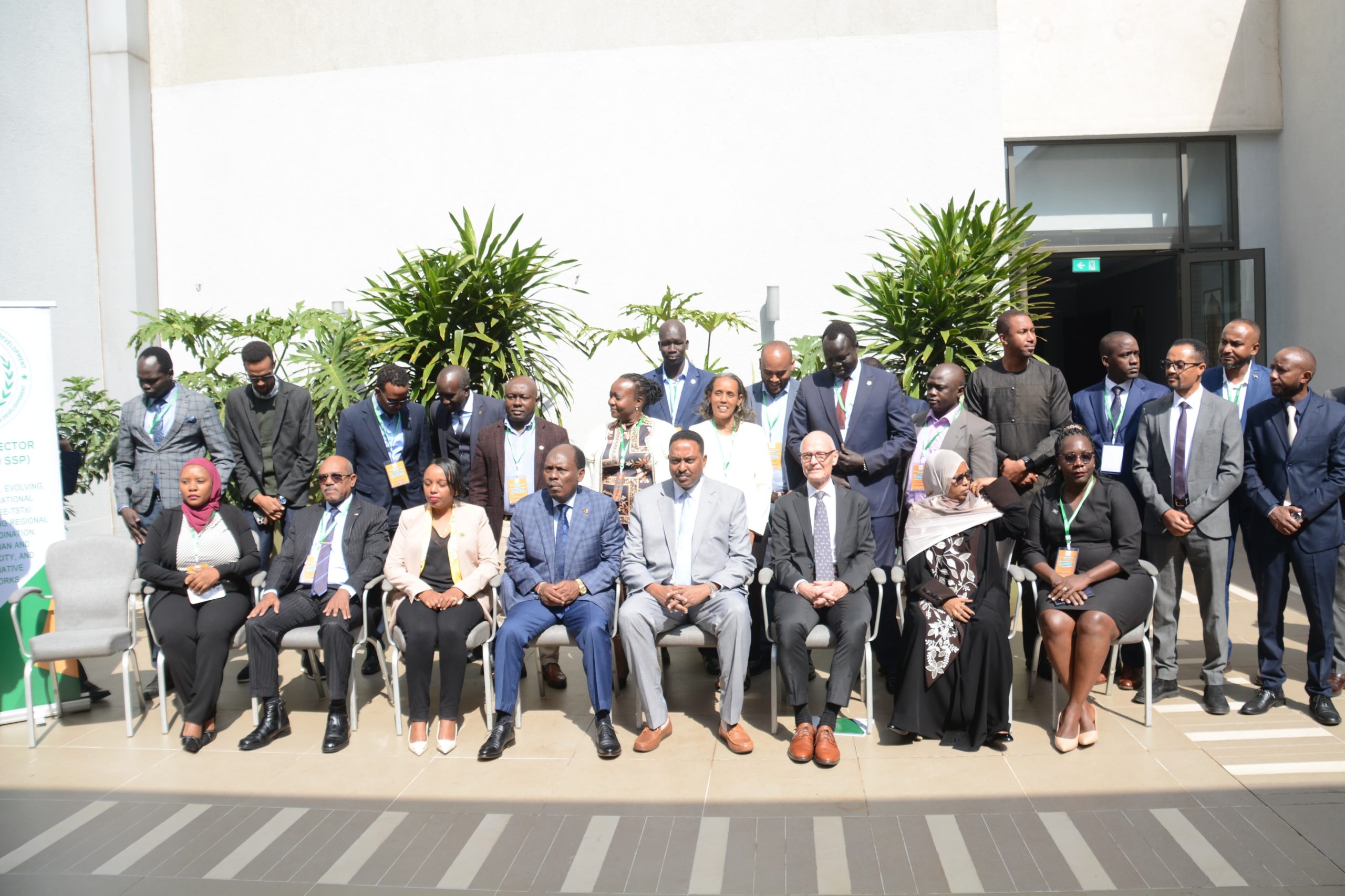
By Steve El Sabai
Nairobi, June 18, 2025
The Intergovernmental Authority on Development (IGAD) Executive Secretary, Dr. Workneh Gebeyehu, has called for urgent, bold, and collaborative action to harness the potential of Artificial Intelligence (AI) and cybersecurity as key drivers of security, cooperation, and resilience across the Greater Horn of Africa.
Speaking at the Regional Consultative Seminar on Harnessing Artificial Intelligence and Cybersecurity for Security, Cooperation, and Resilience in Nairobi, Dr. Workneh commended the Ministry of Information, Communications, and the Digital Economy of the Republic of Kenya, led by Cabinet Secretary Hon. William Kabogo, for hosting the timely forum.
He also recognized Ambassador Gunnar Andreas Holm of Norway, a key development partner, for supporting regional technology and security efforts.
“This is a real honor to discuss artificial intelligence and its transformative potential for enhancing regional security,” Dr. Workneh stated. “The future of security belongs to those who harness artificial intelligence. It will be the divide between the empowered and the powerless.”
The Executive Secretary highlighted that while countries like Ethiopia, Kenya, Uganda, Rwanda, and Djibouti are already leveraging AI for predictive policing, surveillance, and border management, cyber threats remain a major concern. Kenya alone lost over 83 million dollars to cybercrime in 2023, with cyberattacks on government systems rising significantly.
Dr. Workneh emphasized that criminal networks are increasingly targeting law enforcement databases, and terrorist organizations are exploiting digital vulnerabilities, underscoring the need for decisive action.
He proposed a bold strategic vision for the IGAD region, urging member states to embrace key principles. First, Harmonized Security Governance to establish regional AI ethics protocols, shared cybersecurity standards, and cross-border incident response mechanisms. Second, Massive Investment in Security Professionals through the launch of the IGAD Digital Security Skills Initiative to train cybersecurity experts and establish AI centers of excellence in each member state, with a focus on law enforcement applications. Third, Indigenous Security Innovation through the creation of the IGAD AI Security Innovation Fund to support startups tackling unique regional challenges such as border monitoring and anti-terrorism intelligence.
Dr. Workneh also proposed the Nairobi Commitment, a regional pledge to ensure that by 2030, every IGAD citizen benefits from AI-enhanced security while remaining protected from digital threats. He recommended that governments allocate at least two percent of their budgets to AI security infrastructure, while the private sector and development partners should commit to technology transfer and local talent development.
“We stand at a digital crossroads. One path leads to AI-driven security that protects our people. The other leads to digital colonialism, where we lose control of our security data,” he warned.
Dr. Workneh called on African leaders, partners, and innovators to seize the opportunity to secure Africa’s digital future. “Our young digital entrepreneurs are not asking for charity. They are asking for partnership, opportunity, and digital sovereignty,” he said.
He concluded by urging that the seminar be remembered not for the challenges discussed but for the concrete security solutions committed to action.
“Together, we can transform AI challenges into opportunities and harness technology as a force for our collective security, human dignity, and regional prosperity,” Dr. Workneh affirmed.







